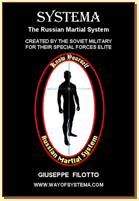There is an excellent article on taboos and their differences in different races and cultures, it is truly a good piece, so I suggest you read the whole thing.
I want to focus on one aspect of it that I witnessed myself in extreme context when I was only four years old, but I remember absolutely clearly.
First, a piece from the article for context:
Taboos in Africa where Schweitzer served were not (always) the same for every person, like they are in our culture. In Schweitzer’s society, taboos were created at the individual level, whereas for us they are usually more general. All whites now are forbidden certain speech here, for instance.
Schweitzer says, “There is nothing in life that may not give occasion to a taboo.” Taboos originated in any number of ways, holders often inventing them for themselves, and also desiring to do so.
One instance: “In the neighborhood of Samkita there lived a woman whose taboo was that she must never touch a broom but do all her sweeping with her hands.” A more important example:
During my first stay, a tragic taboo affair happened at Samkita. A boy at the Mission school there had as his taboo that he must not eat plantains, and must even be careful not to eat any food out of a cooking-pot in which plantains had been cooked immediately before. One day his schoolfellows told him that he had eaten fish from a pot in which there had been remains of plantain. He was immediately seized with cramp and died after few hours. A missionary who was present gave me an account of this perplexing affair.
The modern European will seek for a scientific, medical explanation. A pastime of historians is diagnosing figures from the past from tenuous clues, so strong is the urge to put everything into accepted medical bins. In this case, the modern European will surmise that the boy had a serious allergy, maybe, and the chemical reactions inside his body brought about by eating the plantain caused his death.
This proves, as do the actions of the unfortunate boy himself, that it is not unusual to try to fit the round pegs of observation into the square holes of theory that culture provides.
But notice, and notice carefully, that there is no indication that the pot had any plantains in it! The other boys only said there were. The taboo killed the boy.
If you’re not sold by that story, realize there are many, many other similar ones. They are anyway well known, or used to be. And not restricted to Africans. Fahrenbach tells us Comanche life was in most respects ruled by strict custom enforced by taboos, which we discussed before.
What’s important to us today is the causative effect of the taboo. Taboos caused illness and death. There is no doubt of this. Just as other forms of magic gave health and preserved life. There is no doubt of this either.
Europeans call the health-giving properties of magic the “placebo effect”, to make it sound like science, as all things must. Giving a thing a label is sufficient to put it into a bin, so we can more or less forget about it, as if the label has explained something. It’s not surprising that this label-explaining happens most in psychology. Theories on causal mechanisms abound, but there is no consensus, and many contradictions.
Interestingly, no magic-oriented culture would quail at prescribing magic readily, whereas our science-oriented culture has many long hang-wringing debates over whether prescribing placebos is ethical. We desire to cure people, but we don’t want anybody to stray too far from science.
Taboo translated into science is nocebo, a more recent coinage than placebo. It took a lot longer for science to acknowledge the causative evil effects of taboo violation. Yet nocebos are just more label-making: nothing has been explained. But the acknowledgement is a step forward.
The above paragraphs are absolutely correct. I covered some of this in my posts that included commentary on Maxwell’s equations, the aether and scalar potentials and energy transmissions. I touch on the subject of various “paranormal” phenomena and how to be able to do them yourself in my book Systema, which literally teaches you how to do things like short range telepathy, sensing of various things, from colour to intent and so on, but I want to describe an event I saw with my own eyes when I was four years old in Nigeria.
First, let me state that I have always had an excellent memory right from age two or so. I mention this because a lot of people find that unbelievable, at least as unbelievable that they can’t recall anything prior to age seven or in some cases even later, which to me looks like either retardation or traumatic emotional damage. Perhaps my Asperger’s helps in that regard for I was not short of significant emotional events in childhood, but I recall them all clearly. Anyway, on to the thing I saw.
The Fulani are a semi-nomadic tribe that in Nigeria in 1973, when I was there, for the most part acted as guards. they were honest and didn’t steal, so people used to hire them to guard building sites at night, their homes and so on. Where we lived there were two western style houses, one in which my family, composed of my dad, mom, brother and myself lived, and the other where my dad’s boss, Vincenzo Valsesia lived. They were two bedroom places with one toilet and a lounge/dining area and a veranda enclosed by mosquito netting where windows would be. The kitchen was separate from the lounge/dining area and was accessed via a short covered walkway that linked the kitchen to the dining/lounge room. Giant jumping spiders an inch or two long would run along the walls and jump from one corner to the other, toads, frogs and scorpions were ever-present and so was the occasional rabid dog that would come charging out of the surrounding jungle with literal foam at the mouth and that my dad would invariably dispatch with his shotgun. Once this happened directly at us on a day he was home, though when the workers mentioned one was about my dad would return home and guard us. We had a radio that kept in touch with the site he worked as, managing the construction of Army barracks in an otherwise sparse jungle location with clearings only for our houses and a bit further away the house of another expatriate company, I think it was Costain.
The Fulani had some of their huts not far from our home, roughly between ours and Mr. Valsesia’s place. Their leader lived there and sometimes played with me, using his warrior sticks they used as weapons and giving me a smaller stick to teach me how to fight with them. He was a gentle and kind man, but he had the lean body of a runner and he led his men wisely and strongly. He was not afraid not weak in any way and my dad often jumped in his land-rover with the Fulani chief in the passenger seat to go chase some thieves that had tried to raid one of the building sites for materials.
I remember one day he was playing with me, showing me how to strike with the sticks, he was using his own real weapon-like staves —he had a longer and a shorter one, using both simultaneously— and I had just a small one I was using as a tiny samurai in two-handed fashion. At one point I struck his main staff and it split down the middle breaking in two with a long crack going lengthwise up it. The chief looked astonished. Looked at his staff incredulously then shook his head and just walked away without another word to me. At the time, I was unsure if his staff had really broken or if he had intentionally substituted it for one that he knew would break to maybe make me think I was a great “warrior”. I was unsure of this second hypothesis though, because the staff he was using was a well-worn one and as far as I knew was the one he always had, and secondly, his reaction. He did not congratulate me or do any of the usual good-natured speaking he did (in a language I didn’t understand of course, as he didn’t understand mine either). On reflection, though, in hindsight, his reaction I am sure was genuine, and probably went something along the lines of these white devils being so powerful in their magic that even one of their little boys could destroy his main weapons with a single good blow. I say this because of the other event I witnessed around the same time.
The Fulani chief was I think nominally Muslim, and as such they had up to four wives, him being a chief he had four, and I recall he explained to my dad once that four wives was really the limit, in theory you could have more, but if you got a fifth one, you should “fire” one of the others.
His wives were ranked by age, and the older one was the leader-wife, and in descending order of age came the other three. One of the younger wives, I think it was the second-youngest, did not get along well with the chief wife. The women washed their dishes and pots religiously, every day, in sight of our home, as their camp was only a few dozen metres from us and my brother and I would roam the area, playing, looking for bugs, frogs, and generally doing whatever we wanted without anyone worrying unduly about the occasional snake, scorpions, or wild rabid dogs that infested the area. Such is the way GenX was raised.
I therefore was a prime witness to the older chief-wife washing all the pots and pans and then the younger wife throwing dirt on them and running away laughing. The older wife cursed at her a bit then washed them again. This happened more than once. I was fascinated because even at age four, I did not understand why the older wife did not simply beat the younger one, or, just leave the pots dirty and tell her husband when he came home. Being a little older now I guess that the reason was that the husband, as chief, had his hands full all day with various things and the last thing he wanted to do was come home to dirty plates and arguing wives. Possibly, each wife also had set chores, so the pots being clean may have been the responsibility of the chief-wife and, rightly, any excuses for not having it done would be seen in extremely poor light. So, after the third warning that the older chief-wife gave, and the third time the younger one threw dirt on the cleaned plates, the older wife got a very determined look on her face, grabbed a small piece of baboon skin, said a few mysterious words and then began chasing the younger wife around the courtyard, which was really just bare reddish earth with no fence or wall at all until it reached the untamed jungle. The younger wife ran away screaming and sort of laughing, in that kind of genuine fear that however things you will escape, but the older wife, though not as young, was crafty, and anticipated the turns and swirls that the younger one made, and soon caught the back of her T-shirt with her left hand and shoved the piece of baboon skin down the back of her shirt/dress combination.
Instantly the younger wife threw herself on the ground and started screaming and twisting and rolling about. It looked straight out of some exorcism film in reverse. She screamed and jumped and twisted on the floor like something possessed, then seemed to pass out in a fever and just lay there. The older wife I recall, stood watching it all and when the younger one lapsed into her moaning fever-coma she turned away with a satisfied smirk on her face and went back to washing her plates for the last time today.
The other wives, helped by some friends carried the malingering younger wife into their hut. The woman could not walk or talk and they had to carry her. Shortly thereafter my dad returned home in his Land Rover with the chief beside him. The Fulani had a system where they would shout out and from one to the other they would soon reach wherever the chief or thieves at a building site where. So the chief was soon aware he had to come home and he had asked my dad to bring him home to get there faster.
The chief went in to see the semi-comatose wife and my dad went along to see what was up. I followed them and tried to quietly tell my dad what had happened, but my dad, being a Westerner and thinking probably that his four year old son was unlikely to be able to solve what he assumed was a malarial fever (except they didn’t get it like we did) or some other disease, wasn’t listening to me very much, worried about the woman.
When we were all next to the woman lying on her bed and moaning softly, my dad felt her forehead and knew she did have a real fever, which was partly why he wasn’t listening to me. He tried to explain to the chief she was ill and tried to find out how long she had been feeling ill. It was only when the chief managed to explain that it was some Ju-ju that he finally listened to me. Ju-ju was the word for black magic. At that point my dad finally looked at me and asked me what happened. I still recall what I told him at the time in Italian:
“there is nothing wrong with her dad, she was running around and laughing today, ask the other people here. But she was throwing dirt of the other woman’s cleaned plates, so that one got upset and chased her with a piece of baboon skin and threw it down her shirt. After that she rolled around on the floor screaming and just lay there.” My dad pointed out that the woman had a real fever though, to which I said, “I know she has a fever, but it’s all in her head dad.” My father probably wasn’t sure if I had really understood the situation, I was four after all, but he asked the other people there and despite the language barriers, realised I had summarised what had taken place correctly.
He thought for a bit, then went home with me and when alone double checked with me exactly what had happened, which I repeated to him. he then took a couple of aspirins, and crushed them into a powder. We then returned to the chief and my dad explained that this powder was a powerful white man Ju-ju that would heal his wife and she would sleep and be fine in the morning. they mixed the white powdered aspirins into a bit of water, which made it bitter, but all the better for the Ju-ju I guess, and slowly made the woman sip it. She had been in her semi-comatose state but had heard everything my dad had explained laboriously through the half-english, half-fulani, half-italian and not good with fractions explanations. As soon as she drank the medicine the woman fell asleep snoring. And the next morning she was up and about physically fine but with a much subdued and morose affect.
There was literally nothing wrong with her other than her mind, culture and belief system told her there was. that piece of baboon skin would have had zero effect on me. And not because I was a magical small white warrior-king that can destroy the chief’s main weapon with a common stick I picked off the ground, but because I didn’t believe that shit.
That said, I was a teenager when I learnt that I too was susceptible to the same wrong way of belief. As a kid I used to get sick very easily, especially with sore throats, flus, as well as gut-folding stomach aches. I also got regular nose-bleeds but they didn’t bother me beyond staining my clothes if I wasn’t careful. I was so ill that at one point I missed about three months of school, being in bed with fever, cough, sore throats and so on. When I finally returned to school I was physically weak from having been in bed so long. On the walk home, a thundershower of the type you get in Africa suddenly drenched me. You can go from sunny to torrential rain in seconds and I was wet through all my clothes, just a few hundred metres from home. As I shivered in the cold rain I realised the rain and being cold this way was a certain reason that I would be ill again. All I needed to catch a cold was to literally get cold or rained on and I would be sick the next day or within hours. I had literally just spent three months in bed, had had one day at school and now I was going to get sick again. I felt an absolute rage rise up inside me and I determined right there and then that I would not get sick froths stupid rain and I would not get sick again.
From that day on my incidence of flu and so on disappeared back to what most people would call “normal”, And I was not sick the next day or for a long time after. I still get the occasional man-flu, but I did not get sick at all for most of my life after I realised the power my mind had on it. Even my stomach issues which have a basis in Gilbert’s disease, a genetic disorder of the liver, have much improved as I applied this lesson to them. It is true that covid really did knock me on my ass and pneumonia nearly killed me in April of last year and I had a recurrence in November and that I have been a bit far from perfect health for a while, but I do think there are external factors too. That said, the lesson is still in there and I have been better lately even as I take steps to reduce the external factors, like mould, diet, and next some way to avoid the worst effects of the chemtrails, which I am researching, but above all, mindset counts far more than you think.
I am now in the process of consciously applying the positives of the “placebo” effect, which I wrote about on this blog before, in as many aspects of my life as I can. And it is indeed having results already.
There is a link between “positive thinking” (which is mostly a con-job sold by grifters in the format it is most often presented in) correct prayer, and the right mental attitude of responsible creator instead of “powerless victim”, but finding the right balance and applying correctly is a fine balancing act. Or maybe I just think it is. Either way, positive results are happening gradually but continuously, not just for me, but also for those that have asked for help in changing their minds in this fashion.
I hope you will consider your own placebos, nocebos, taboos and superstitions and alter them as required to produce better effects in your life.
Tags: hypnosis, mind over matter, the kurgan







Could you please show the line between this and various occult/manifestation-related practices?
uh…sure, I’ll just write the equivalent of the lost books of the library in Alexandria in a minute or two…
Hey, we know you can’t rewrite Alexandria, at least in two minutes, but res mirabilis, now in 2023, perhaps AI can get right on that chore for you if you ask politely.
Understood. Thank you. Apologies for stupid question